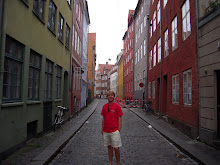Michel is a pleasure-seeker; he follows his id and schedules nothing. His first action, stealing a car, exhibits his recklessness and impulsive nature. He justifies it later on while speeding away, telling the camera in almost documentary fashion, that it’s just “as old Bugatti said, cars are for driving, not stopping.” Michel drives the way he lives his life; there’s no thinking about consequences, there’s simply the one speed he maintains and neither the women he sleeps with nor the police chasing after him can derail him. His actions dictate his disregard: he orders breakfast and then leaves, he declines money his female acquaintance offers but then steals it when she’s not looking, he walks into a hotel room and takes a key, he knocks a man out in the bathroom and steals his wallet. Even when he sees the death of a man on the street, an omen when considering Michel’s eventual fate, Michel takes a look and then continues reading the paper. The death gives him no pause, much like his murder of the cop early on. Life's largest consequence has no effect whatsoever.

All these actions reveal Michel’s lack of a moral center. He’s aimless and unsatisfied. But, nonetheless, he does little of actual value to change his situation. He expresses to Patricia that he can’t live without her, but, as soon as she leaves him, he curses her off. The only thing that might salvage Michel is Patricia. Like the girl in the story Michel relates about the bus driver who stole five million francs, Patricia could be his confident, his partner in crime. But Patricia is under a similar trance of aimlessness. Her confusion and what she wants is understood when she tells Michel: “I want you to love me, but at the same time I don’t want you to. I love my freedom also.” This greatly contrasts with what she says later about freedom, mainly, that she doesn’t have any. “I don’t know if I’m unhappy because I’m not free, or if I’m not free because I’m unhappy,” she says to Michel in her room. Though she fights a battle against an unknown something—herself? the country? her job?—her cognizance of her state of mind makes her more capable of handling reality than it does Michel. She is a visitor in France, and can always retreat home, whereas Michel has no grounding or homebase.

Ultimately, however, she turns him in, disbelieving in his self and only believing in his unhappiness. “When we talked, I talked about me, you about you, whereas we should’ve talked about each other,” he relates. This vague reasoning, that they could’ve changed something to be happier, is as aimless as the rest of their actions in the film. Michel, despite this reality, continues to run even after the police mortally wound him. He sprints away, because life is for running, not stopping, and in the film’s final moment, he brings the theme full circle. He insults himself, but the policeman mishears him, relating to Patricia that his last words were the insult directed towards her. But, this misinterpretation, along with the “mask”—the series of three facial gestures—that Michel passes along to Patricia, perhaps signifies the passing of his own aimlessness as well.

No comments:
Post a Comment